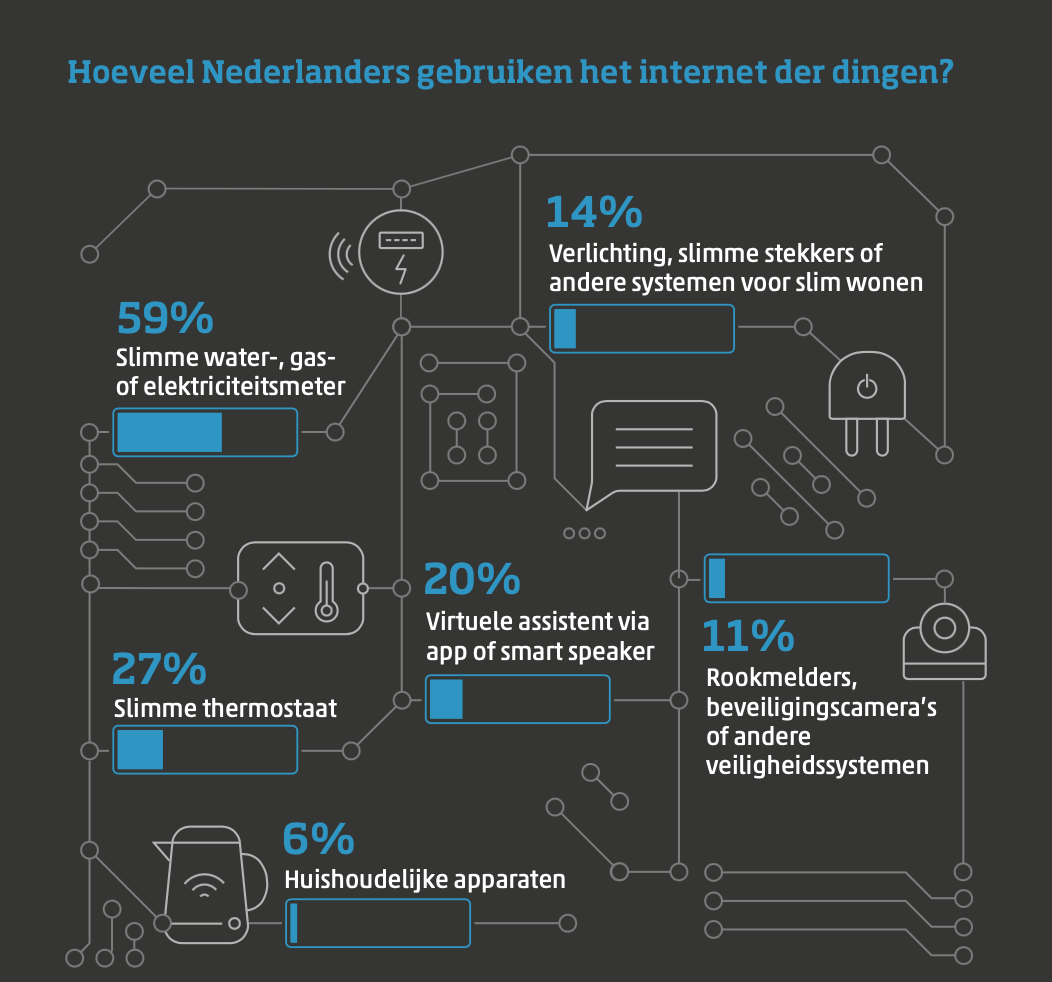Smart devices in the Netherlands
In addition, the smart devices mainly concern energy meters: 59% indicated that they have a smart water, gas or electricity meter that you can read remotely. Other smart devices are a lot less popular. For example, only a quarter use smart thermostats. Smart plugs, buttons and watches score lower.
Statistics Netherlands surveyed 6,500 people aged 12 and older in the period April to July 2020. It is a mystery why it took a year and a half to publish the figures.
This is the outcome:
- 72% has a smart device (EU: 8%)
- 59% smart water, gas or electricity meter
- 27% smart thermostat
- 20% virtual assistant via app or smart speaker (EU: 11%)
- 20% smart accessories, such as a watch or fitness tracker
- 14 % smart lighting, plugs or other systems for smart living
- 11% smoke detectors, security cameras or other safety systems
- 10% car with internet connection
- 6% health accessories such as scales or blood pressure monitor
- 6% household appliances
- 3% toys with internet connection, such as robots and dolls


Household appliances such as a robot vacuum cleaner, refrigerator or an internet-connected coffee maker are therefore hardly in use. The Netherlands is lagging behind in this area in Europe: our country was in sixth or seventh place in 2020, behind other countries.
At the same time, the Netherlands is a leader in the field of other smart devices: 69% of the inhabitants aged 16 to 75 had a smart device at home in 2020. In the EU, that average was 8%. The high percentage is mainly due to the enormous amount of smart energy meters in Dutch households.
The Netherlands is also leading the way with smart assistants: 20% use a virtual assistant such as Siri or Alexa, while the European average is 11%.
Concerns about security and privacy
So there is also a large group that does not have smart devices in the house. As a reason, 77% stated that they do not need it. A quarter cite the high costs or concerns about privacy or security. The Dutch are less concerned about compatibility and effects on their own health when it comes to smart devices.
More information about the study can be found here.